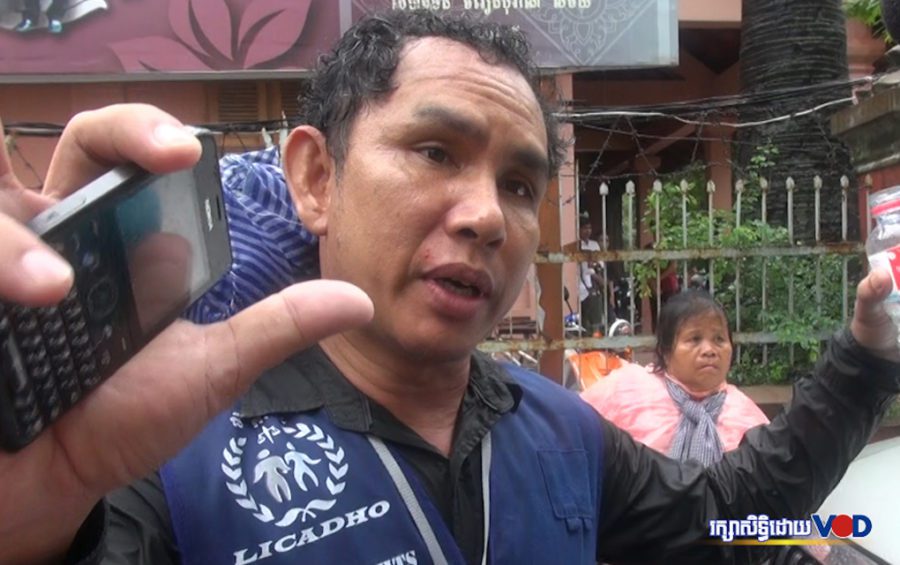The U.N. on Tuesday publicly released a letter challenging the government over alleged “intimidation” against a Licadho official, as the government continued to attack the group for participating in “a network” of local and international organizations working to “fabricate” news about Cambodia.
Am Sam Ath, the rights group’s monitoring manager, was quoted by U.S.-run Radio Free Asia on March 29 saying some arrests over Covid-19-related Facebook posts were likely politically motivated. Two days later, Prime Minister Hun Sen warned that Sam Ath could be arrested over his comments.
The U.N. sent its letter to the government two months after the exchange. It seeks answers over government actions that could create a “chilling effect on freedom of expression.”
“[W]e are concerned that the public condemnation of and threat to arrest Mr. Am Sam Ath appear directly linked to his work in defence of human rights, and designed to curb the exercise of his right to freedom of expression and his right to defend human rights,” says the letter, written by four U.N. rapporteurs.
The letter asks for information about the incident, and also requests that the government explain what measures it will take to ensure the media can disseminate information about Covid-19 without threat or intimidation.
The U.N.’s human rights office in Cambodia publicly released the letter on Tuesday alongside the government’s response of July 14, as part of its policy to release joint letters and replies 60 days after they are sent.
In its reply, Cambodia’s Permanent Mission to the U.N. said civil society officers including Sam Ath are protected against intimidation, but they need to file “precise information on the alleged intimidation” if they want authorities to take appropriate action.
The reply adds that “all stakeholders, including media” must accurately “observe” the health measures taken by the government over Covid-19.
“[T]hey should not engage in dissemination and exaggeration of any unverified information, which instills fears into the people and results in social unrest and instability,” it says.
As he opened a press conference on Tuesday, government spokesman Phay Siphan continued the warnings over “fabrications” as well as a recent wave of criticism against Licadho.
The rights group has drawn ire from government officials over its latest research reports. It co-authored a series of investigations into alleged human rights abuses in the microfinance industry, where mounting debt among the rural poor is said to be causing land dispossession. On Monday, Licadho and three other rights groups published a study on the powerful interests behind the land-filling of Phnom Penh’s Tompun lake.
Siphan named Licadho as part of a supposed network of organizations collaborating to invent reports and stir up the media.
“Recently, we found activities of some organizations such as Licadho and [other] international organizations have good communication with each other about the fabrication of news that we find difficult to accept,” Siphan said. “This is a network that is inventing reports, inventing news, and organizing a series of stories in order to fabricate and exaggerate the news.”
Naly Pilorge, Licadho’s director, told VOD that the government should value the perspectives of civil society rather than try to suppress them.
She added the group was pleased that the U.N.’s human rights office had responded to the comments about Sam Ath.
“Mr. Am Sam Ath has dedicated most of his life to protecting the rights of vulnerable groups in Cambodia and speaking out against injustice and violence,” she said via message. “Like with so many other human rights defenders, we hope the Cambodian government will value the importance and value of opinions of civil society rather than oppress and eliminate such voices.”












